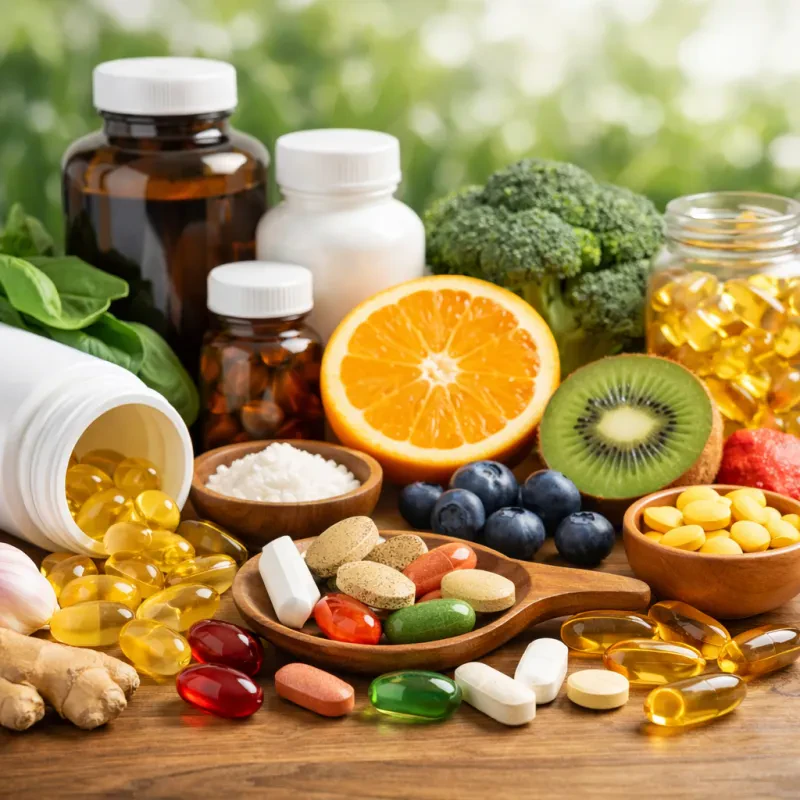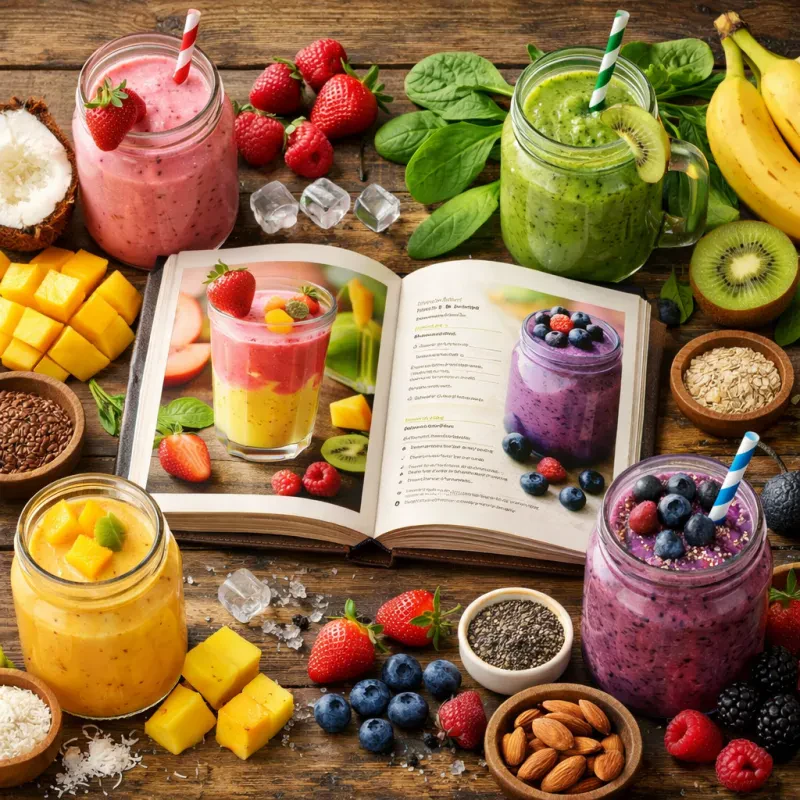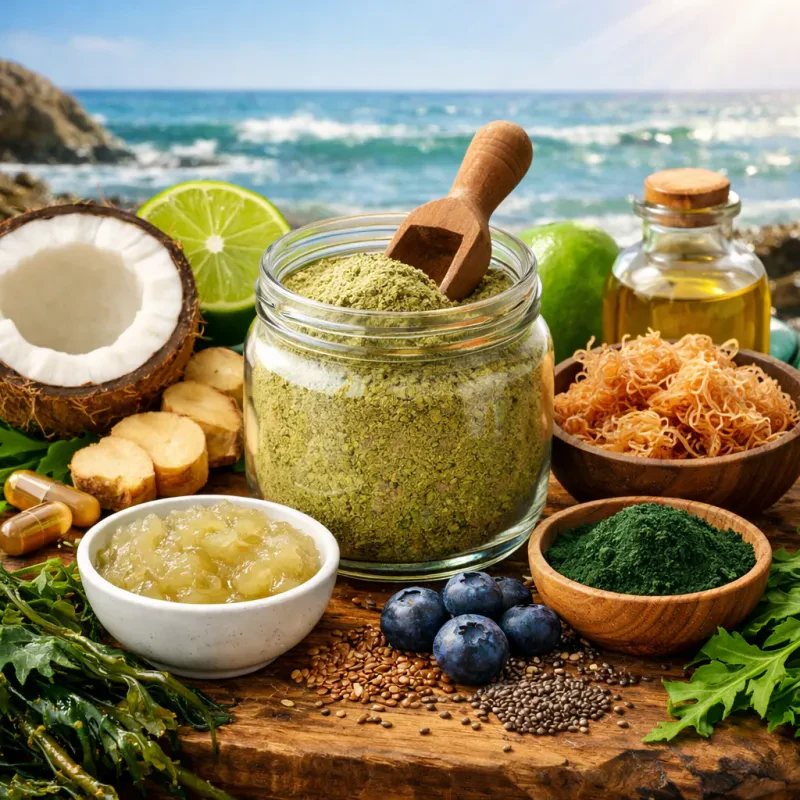Vitamins are vital nutrients that your body needs to function properly. They play a key role in maintaining overall health and supporting various bodily functions. By incorporating essential vitamins into your daily routine, you can boost your energy levels, enhance your immune system, and improve your mood. Let’s explore some of the most important vitamins for everyday wellness.
Vitamin C is a powerful antioxidant that helps protect your body from free radicals and supports your immune system. It is essential for the growth and repair of tissues and aids in the absorption of iron. You can find Vitamin C in fruits like oranges, strawberries, and kiwis, as well as in vegetables such as bell peppers and broccoli. Including these foods in your diet can help ensure you get enough of this vital nutrient.
Vitamin D is often referred to as the "sunshine vitamin" because your body produces it in response to sunlight. This vitamin is essential for bone health, as it helps the body absorb calcium. It also plays a role in reducing inflammation and supporting immune function. Foods rich in Vitamin D include fatty fish, egg yolks, and fortified dairy products. If you spend a lot of time indoors, you might also consider a Vitamin D supplement to maintain optimal levels.
Another important vitamin is Vitamin B12, which is crucial for energy production and red blood cell formation. This vitamin is especially vital for those on a vegetarian or vegan diet, as it is primarily found in animal products. Good sources of Vitamin B12 include fish, meat, dairy, and fortified cereals. Regular intake of this vitamin can help prevent fatigue and keep your energy levels steady throughout the day.
Key Benefits of Vitamin A
Vitamin A is an essential nutrient that plays a vital role in maintaining our overall health. One of its primary benefits is supporting vision. It helps form a pigment called rhodopsin, which is crucial for our ability to see in low light. A deficiency in Vitamin A can lead to night blindness and other serious eye problems.
Another significant benefit of Vitamin A is its role in boosting the immune system. This vitamin helps our bodies produce white blood cells, which are essential for fighting off infections and diseases. A robust immune system means better protection against colds, flu, and other illnesses, making Vitamin A a key player in staying healthy.
Additionally, Vitamin A is important for skin health. It helps maintain healthy skin by promoting cell production and repair. This means that not only can it help with acne and other skin conditions, but it also contributes to a youthful and vibrant appearance. Foods rich in Vitamin A, such as carrots, sweet potatoes, and spinach, can be excellent additions to a skincare-friendly diet.
Lastly, Vitamin A plays a vital role in reproductive health. It is essential for the development of sperm in men and supports a healthy pregnancy in women. Ensuring adequate intake of this powerful vitamin can thus aid in fertility and promote a healthy start for a new life.
The Power of Vitamin C
Vitamin C, also known as ascorbic acid, is a powerful antioxidant that plays a vital role in keeping our bodies healthy. This essential vitamin is not only crucial for the growth and repair of tissues, but it also helps protect our cells from damage caused by free radicals. Our bodies cannot produce vitamin C on their own, which is why it’s important to include vitamin C-rich foods in our daily diets.
One of the most well-known benefits of vitamin C is its ability to boost the immune system. Consuming sufficient amounts of this vitamin can help your body fight off infections and illnesses. Citrus fruits like oranges, lemons, and grapefruits are famously rich in vitamin C, but you can also find it in other delicious foods such as strawberries, kiwi, bell peppers, and broccoli.
In addition to supporting your immune system, vitamin C plays a crucial role in collagen production, which is essential for healthy skin, joints, and blood vessels. Collagen is a protein that helps maintain the skin's elasticity and firmness, making vitamin C an important ally in promoting a youthful appearance. Including vitamin C in your meals can help your body produce more collagen, leading to healthier skin and improved overall physical health.
Furthermore, vitamin C can enhance the absorption of iron from plant-based foods, making it an important nutrient for those following vegetarian or vegan diets. Iron is essential for transporting oxygen throughout the body, and when combined with vitamin C, your body can utilize it more effectively. To maximize iron absorption, consider pairing iron-rich foods like lentils or spinach with a vitamin C source, such as a citrus-based dressing or a side of strawberries.
Understanding Vitamin D Sources
Vitamin D is often referred to as the "sunshine vitamin" because your body produces it when exposed to sunlight. This unique vitamin plays a crucial role in maintaining bone health, supporting immune function, and regulating mood. Understanding the different sources of vitamin D is essential to ensuring you get enough of this vital nutrient in your diet.
The main source of vitamin D is sunlight. When your skin is exposed to UV rays, it synthesizes vitamin D naturally. Aim for about 15 to 30 minutes of sunlight each day, depending on your skin tone, location, and time of year. However, during the winter months or in regions with limited sunlight, it can be challenging to get enough vitamin D from the sun alone.
Fortunately, there are several dietary sources of vitamin D that you can incorporate into your meals. Fatty fish like salmon, mackerel, and sardines are excellent sources, providing substantial amounts of vitamin D. Other options include fortified foods such as milk, orange juice, and breakfast cereals, which are enhanced with this important vitamin to help you meet your daily needs.
For those who follow a vegetarian or vegan diet, obtaining vitamin D can be slightly more challenging. Mushrooms exposed to UV light can be a good plant-based source, and some fortified alternatives like almond milk or tofu can also provide vitamin D. If you’re unsure about your vitamin D levels, you might also consider supplements, particularly during the winter months when sunlight exposure is low.



